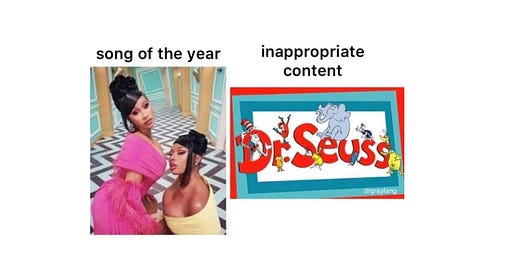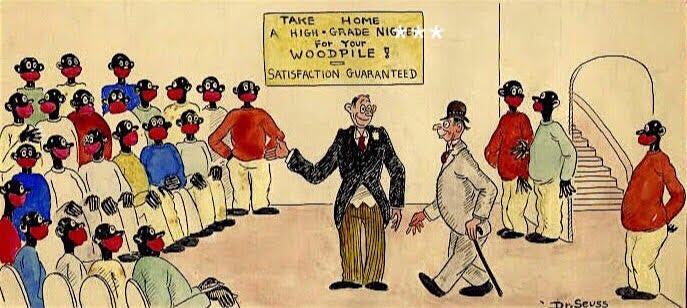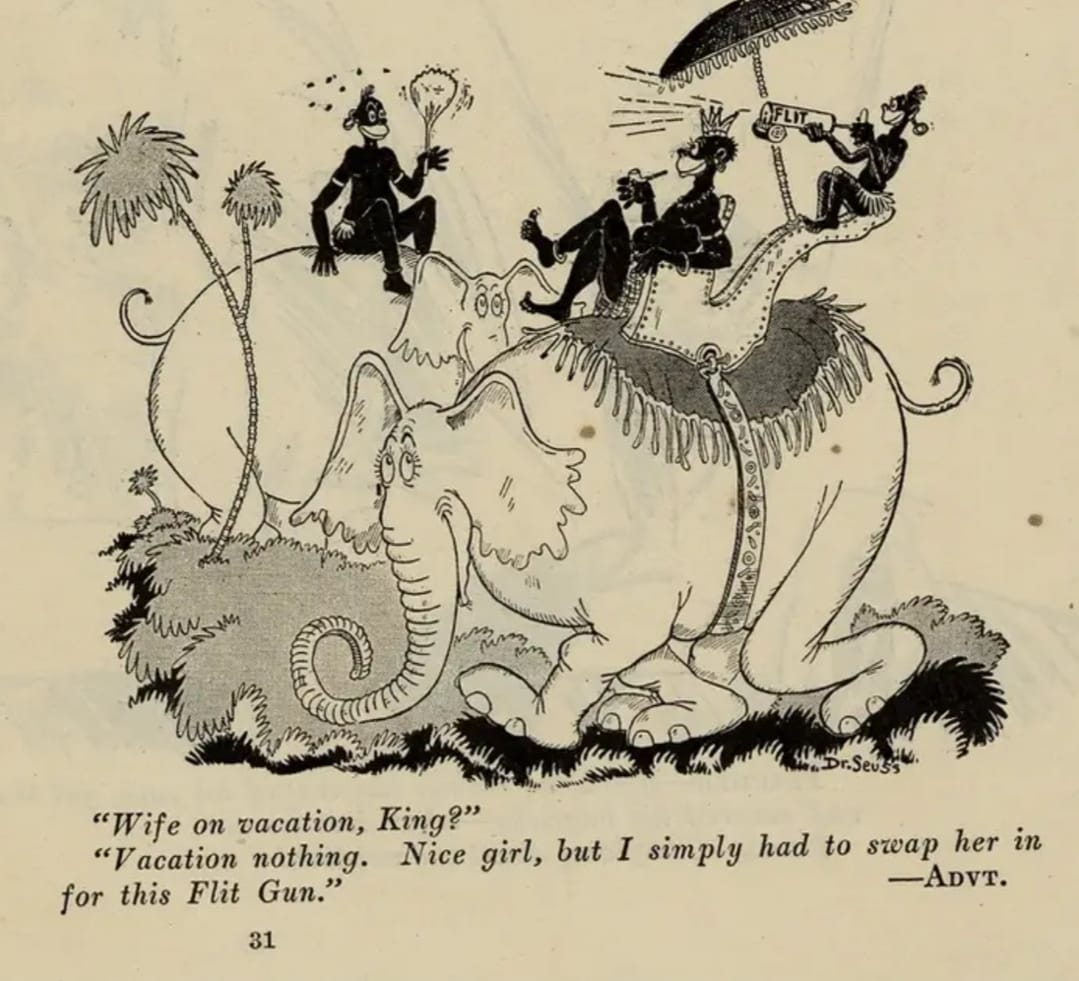Coordinated Messaging Has Us in a Dr. Seuss Meme War at a Very Convenient Time
Here's what happened and what you might be missing.
Since the media and political elites have chosen to discuss Dr. Seuss and the WAP song, instead of some of the most consequential congressional testimony in our nation’s history, you may have seen this meme. Definitely, you’ve seen someone arguing, remarking, or otherwise sharing some culture-war commentary on this subject.
If the two represented similar circumstances then it would indeed be ridiculous and illogical. Since they are not, it’s a faulty analogy, a logical fallacy. More importantly, when all evidence is viewed together, it looks a lot like a coordinated messaging campaign, the kind we’ve seen before.
Let’s look at:
What happened
How, when, and by who this is being misrepresented
Why the two instances in the meme aren’t similar
What Happened
From Feb 26 to Mar 2 droves began buzzing on social media objecting to the “cancelation” or “banning” of books by Theodor Geisel, better known as the children’s author Dr. Seuss. In some accounts, it was actual censorship — a state-sponsored cancellation ordered by President Joe Biden himself.
Is that what happened? No.
Read Across America (and Read Across America Day) is a National Education Association initiative. Previously, Obama and Trump mentioned Seuss by name. Obama especially mentioned Seuss.
NEA’s licensing agreement with Dr. Seuss ended in August 2019, it appears the contract wasn’t renewed. President Trump held Presidential office until Jan 20, 2021.
Dr. Seuss Enterprises announced a decision to “shelve” six Dr. Seuss books on March 2, 2021, which appears to be the supporting evidence that the books had been “canceled” or “banned.”
“The decision to stop publishing and licensing the books follows a review by a panel of educators and other experts, according to Dr. Seuss Enterprises, the company that controls the author's books and characters.”
Seuss Enterprises itself commissioned the advisory panel and made the decision. It’s not surprising that they would follow the advice they likely paid to receive. Biden is absent from this situation. The basis for the claims that Biden “canceled” Dr. Seuss may be that he did not mention Dr. Seuss in his Read Across America Day Proclamation.
One headline states that he removed Dr. Seuss but the event itself was never about Seuss. There is no indication he specifically removed Dr. Seuss or that he played any role in Seuss Enterprises’ decision. The idea appears driven almost exclusively by political figures and hyper-partisan media.
While many people saw funny memes and people voicing their opinions, those familiar with it saw telltale signs of media manipulation.
We’ve learned a lot of interesting things in the past few days that one would think has more relevance than Biden not canceling Dr. Seuss.

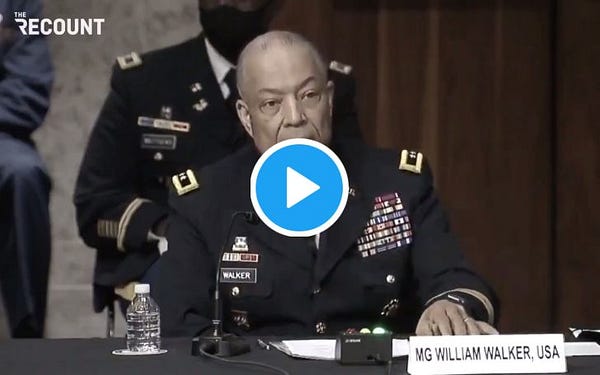
Major General’s “frantic” plea that expressed a “dire” need for help that went unanswered for three hours and nineteen minutes.
We also heard again about how restrictions were put in place on Jan 4th that prevented a timely response. These were highly unusual and came after the threat was well-known.
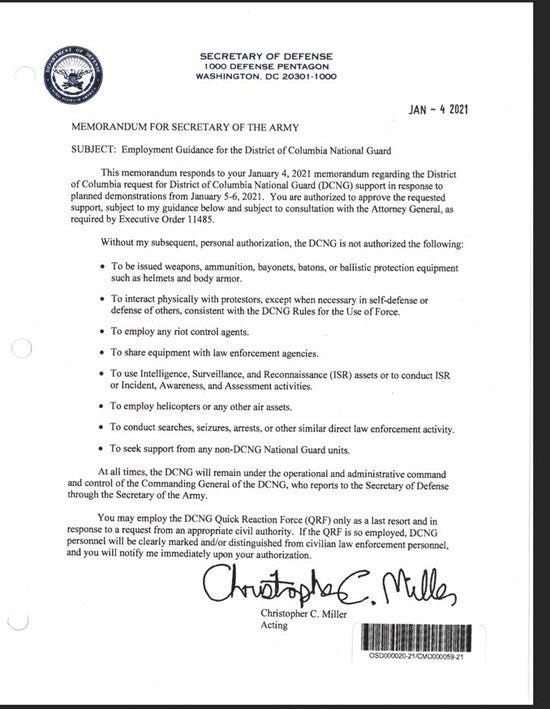
This is the same hearing where FBI Director Christopher Wray testified the FBI found no evidence that Antifa had any involvement in an attack, which has since yielded charges like seditious conspiracy.



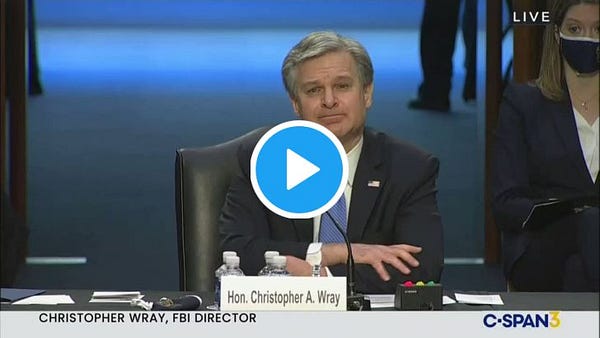
The FBI is investigating members of Congress. Some appear nervous about that. After Wray answered the same question over and over, Democratic Congressman Whitehouse castigated Wray for an unrelated investigation. Twas a rough day for Director Wray.
Congress won’t be in session tomorrow because of a credible threat from extremists, and the response we’re getting is, let’s talk about Dr. Seuss?
Either they are misinformed and the world's biggest Seuss-superfans or this has the makings of a fairly textbook strategic information operation. For those who are unfamiliar with them, I’ll outline what we’d expect to see.
Shiny Things Over Here
1) Divert attention by pivoting to something that will occupy the public. If the diversion provokes a strong emotion, that is best. Several recent studies empirically show that we have elected officials who use this tactic.
2) Remind the public of a threat bigger than any disagreement within the party, ideally scaring them back into your arms. This may include framing the issue as us versus “them” or “they.” Influence efforts almost always include distortions or logical fallacies.
Rep McCarthy appears to have taken care of one and two. Somehow a contract non-renewal under the previous President, a Presidential non-mention, and a company following the recommendations of an advisory board it hired have forced Rep McCarthy to use his time to address the US Congress. McCarthy proceeds to mislead the public in a way that is politically advantageous, intentional or not. He even throws in a vague “they,” which is both disappointing and telling.

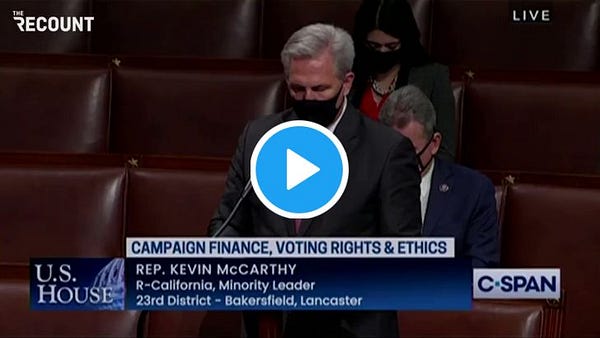
3) Now, for the most important part of getting the public to believe whatever story you’re putting out there: Say it over and over until it becomes the truth. Repeat the message through multiple mediums and drown out any other conversation. It doesn’t have to be completely true, just repeated. This works best with other influential figures going along because public opinion is most easily manipulated from the top down.
For this reason, leadership in democratic countries can often be a target of autocratic leaders. This strategy itself also comes from the autocratic world. Repeating a false claim across multiple platforms, quickly and at a high-volume, is known as the Russian “firehose of falsehoods.” It’s a methodology finely tuned by Russian leaders for spreading propaganda.
All things equal, we more readily accept an idea if we hear it over and over. Other biases take over as well. We assume if many people say something, then it must be true or reasonable. This can go in the other direction where bad actors cast doubt on the word of people who could expose them. Either way, it is an appeal to common belief.
These efforts play on human emotions—fear, hope, anger, frustration, sympathy—to direct audiences toward the desired goal. Do this successfully and like the many who came before you, you will gain support and control over a group by protecting them from a threat that never existed in the first place.
Let’s look for distortions, deflection, and dishonesty


Mr. Cruz models an appeal to anger. He either failed to fact-check a claim that was likely to upset his constituents or he knowingly misled them.

Demonization, Ad Hominem, Appeals to Fear and Anger. "Either-or" or "us-them" thinking subdues further processing of complex information and ideas.

Madison Cawthorn has a history of misrepresenting the situation.

What-about-ism, an authoritarian favorite.


Hannity with the Red Herring, possible non-sequitur.

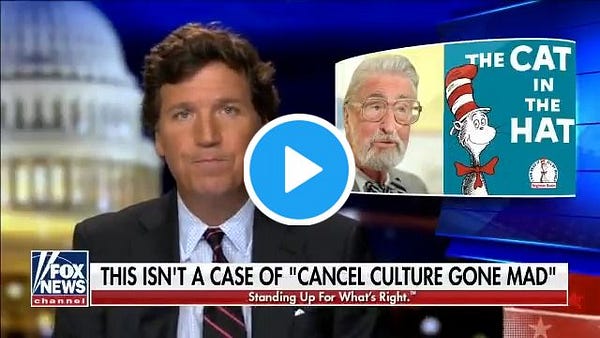
Appeal to fear, “common sense,” and alleged certainty.
Believe it or not, humor was a historically popular tactic; NATO has a Strategic Communication Guide that explains humor-driven propaganda. It, too, helps to bypass critical thinking. Again, no one has canceled Dr. Seuss except Dr. Seuss.
Zero Hedge has a history of peddling conspiracy theories and medical misinformation.
Mr. Sorbo uses the Slippery Slope logical fallacy, possibly a non-sequitur.


Newsmax with ad hominem and straw man.

Equivocation from Mr. Shapiro.
We could go on, but think about how similar this misrepresentation was. If not intentional, given the facts, it constitutes a shocking lapse in journalistic standards. If it was that, we would expect reputable outlets to issue a correction. This is standard for credible sources. We have yet to find any.
Look at the posts, articles, and news segments and compare them with concrete evidence. Do they seem like the most important story of the day? Do these claims seem accurate? How do the claims make you feel? Who benefits from you believing them?
You don’t have to tell me what you think — just consider it.
Back to the Misleading Meme
Let’s pretend Biden did cancel Dr. Seuss, which we’ve established he didn’t. The song is inappropriate, but it also isn’t for children. I’m guessing it’s the song of the year because of groups other than young children.
As for Seuss, I’ve seen a lot of people upset about Dr. Seuss but the books were NOT banned and will doubtlessly continue to be popular. Six Dr. Seuss books will no longer be published because they "portray people in ways that are hurtful and wrong,” per the author's legacy representative.
Geisel was well known for his anti-Semitic and racist views. Some of his published and unpublished work had overt nods to white supremacy.
The titles being “shelved” were selected because an advisory board the Seuss Enterprises hired recommended their removal. Seuss Enterprises hired them to study the issue and then took the advice. Biden was absent from the board, so it does not logically follow he played a role.
While it’s fine if adults want to read them personally, just as it’s fine if they want to listen to questionable music, it’s something else to endorse them for all kids. Although the President did not “cancel” anything, it’s worth adding: People in positions of power have a duty to represent everyone — something many of our representatives have forgotten.
Still, there is no evidence that Biden waged war on the books. His former boss, Obama, certainly did not. He referred to Seuss as “one of America’s revered wordsmiths,” and said, “Theodor Seuss Geisel — or Dr. Seuss — used his incredible talent to instill in his most impressionable readers universal values we all hold dear.”
We can appreciate someone’s work while not elevating them to a god-like status, beyond reproach or critique.
Geisel was a flawed man.
He also wrote books that have a great deal of meaning to a lot of people alive today. These can both be true at the same time.

